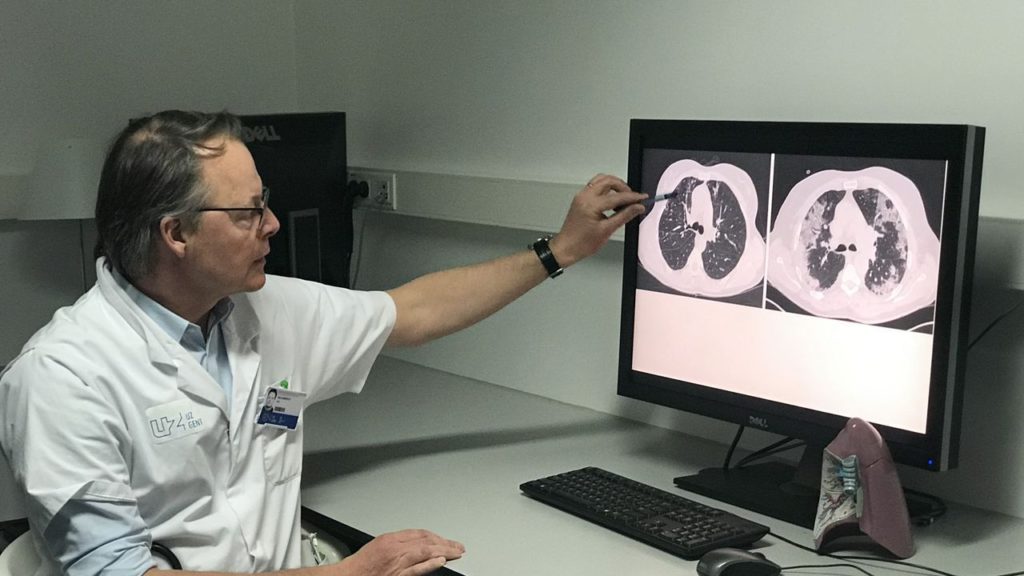Researchers at the university hospital of Ghent and the Flemish Institute for Biotechnology (VIB) have begun a trial of the drug Leukine, to find out if it could be useful in the treatment of patients with the coronavirus Covid-19.
Leukine is a copy of a growth factor known as GM-CSF, produced by the body during infections, which has been approved for use since 1991, mainly on patients recovering from chemotherapy. It has been found to help the body promote lung repair.
At the moment, teams across the world are working on developing a vaccine to protect against the coronavirus, but that is expected to take at least a year.
In the meantime, clinicians are concentrating on treating people who have the disease, whose progress differs from one patient to another.
“Some Covid patients get worse remarkably quickly,” said lead researcher on inflammation research Professor Bart Lambrecht.
“Once a patient lands in intensive care, there is often a long list of complications: kidney failure, blockage of the liver, problems with the blood and respiration. People often have fever for a very long time, much longer than we see normally. You don’t get that with a normal lung infection.”
The priority for those patients is to treat them in any way possible before those complications prove fatal. Doctors then turn to existing medication, like the anti-malarial chloroquine, on the one hand, which was tested on lab samples of the SARS virus – itself a coronavirus – in 2003-2004 with promising results. And like Leukine.
“We’re looking at medicines that protect the lungs and especially the alveoli [the air sacs that are clustered throughout the lungs and which are where the blood is oxygenated before being returned to the heart to be sent out into the body] and which see to it that the patient no longer has fever,” Prof Lambrecht said.
“That way you can prevent people from having to end up in intensive care. It also helps patients already there to return to a normal ward faster. The less time anyone spends in intensive care the better.”
Leukine works on lung cells called alveolar macrophages, which are attacked by the Covid-19 infection.
“We hope to be able to reverse that process by administering Leukine via a nebuliser [which creates a mist which is then inhaled by the patient]. If the alveolar macrophages can work normally again, the lung repairs faster, and hopefully we can prevent the patient landing in intensive care.”
The research begins today, with the drug being given to patients in Ghent university hospital. Later, the trial will extend out to the Sint-Jan hospital in Bruges. In the meantime, research teams in Italy and Germany have expressed an interest in taking part in the project.
Alan Hope
The Brussels Times

